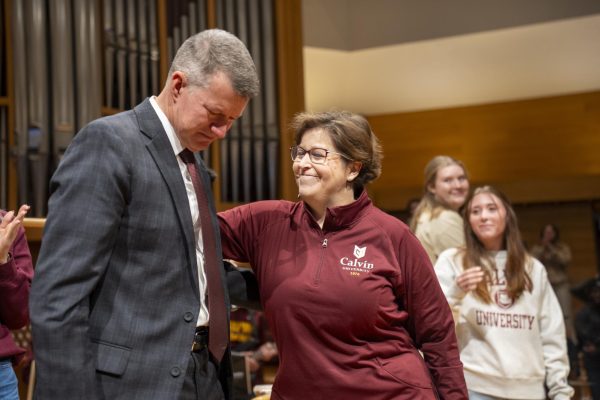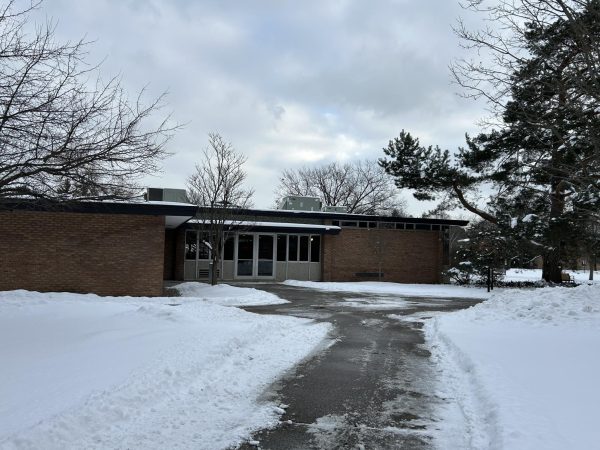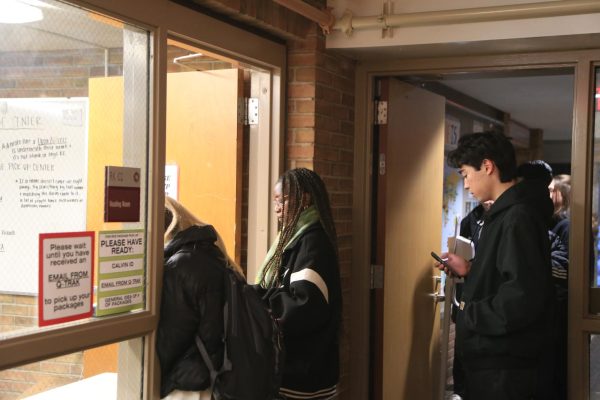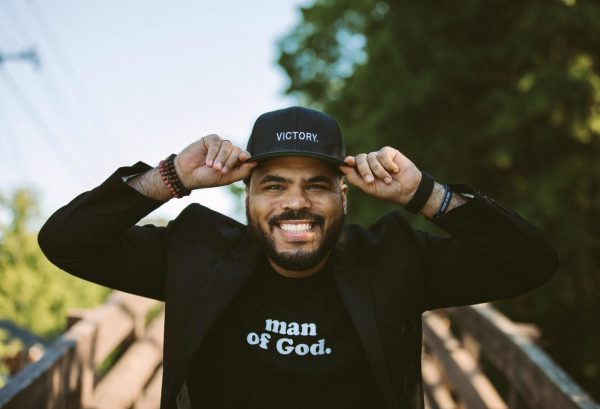Prison ministry degree program reflects restorative justice
At Handlon Correctional Facility in Ionia, MI, select inmates will have the opportunity to earn an AA or BA degree in Ministry Leadership through Calvin College this fall.
The Ministry Leadership program, initiated by the Calvin Theological Seminary (CTS) in partnership with Calvin College, has gained the interest of the college; and though it is still waiting for final accreditation, was approved by faculty senate at the beginning of this month.
Each year, around 18 to 20 selected inmates will be transferred from various Michigan prisons to the Handlon Correctional Facility to take courses in required core disciplines and in Ministry Leadership.
After completing at least 124 semester hours over a period of 5 years, students will receive a BA degree, which will enable them to lead worship, disciple fellow inmates, and mentor short-term prisoners.
“This proposal is not based on sentimental feelings that this project seems like a nice Christian thing to do and might do some good,” said David Rylaarsdam, a professor of historical theology at CTS. “It is based on consistent, striking statistics about the positive effects of higher education in prisons.”
Rylaarsdam, one of the chief architects of the program, went on to explain how related programs have been shown to drastically reduce violence and rates of recidivism.
The program itself is adopted off a similar one in Angola, Louisiana, and is new to CTS, Calvin College, and the correctional facility; the concept, however, is not.
“Classes are being taught already, just not in any sort of program,” said Nate Bradford, associate chaplain for residence life. With the program in place, teaching in the correctional facility becomes more practical and goal oriented.
Rather than attending classes simply out of the desire to learn, students can now work toward something more structured, long term, and substantial.
The benefits, though, extend far beyond the corrections facility.
“It energizes professors and changes the way they approach teaching,” said Bradford, “and I think that will affect students here on [Calvin’s] campus as well.”
While the program offers education for those in prison, it simultaneously offers a new educational experience to the Calvin community.
“Faculty and free student volunteers can learn concretely and experientially the nature of retributive justice and of restorative justice,” said Rylaarsdam, “they will learn the effects of crime on families and neighborhoods…and the connections between crime and other societal problems such as racism and poverty.”
Professors Lee Hardy and Rebecca DeYoung of the philosophy department have been involved with teaching courses at the facility already, and they hoped more professors would join them; now, nearly every educational department at Calvin will be involved.
For text-oriented courses, the program will be more easily transported from Calvin to the corrections facility, but for some courses in Biology and Chemistry, course conveyance won’t be as easy.
“Some classes are particularly challenging to bring behind bars,” said Bradford, “Almost every department has to figure out a way to do this.”
But by nature, like any countercultural act, the program is not in place because it is easy. Those involved see this as a necessary expression of the Christian faith.
“This is one of the critical issues of the day,” said Bradford, “So, as Christians, let’s put our money where our mouth is and do something. Let’s not, as Bryan Stevenson says, let people be defined for the worst thing they’ve ever done.”
Last month during the January Series, Bryan Stevenson, award winning author and the Executive Director of the Equal Justice Initiative, brought the conversation of mass incarceration and racism to the forefront of discussions at Calvin College by sharing startling stories and statistics of the injustice in the U.S. prison system.
In light of Stevenson’s talk, Bradford sees the Ministry Leadership degree program as a direct way to address those issues from a standpoint of Christian responsibility.
“I think the church needs to be part of the answer, and ideally leading the way with the problem of mass incarceration,” said Bradford, “And I think it’s a huge win for Calvin College to be on the leading edge of this issue.”
On April 17th, Bradford will be traveling to Washington D.C. to participate in the Ecumenical Advocacy Days conference, where he will advocate for anti-racism and justice in the prison system.
Students are welcome to join him and collaborate with others from across the country to work toward a reformed justice system.






